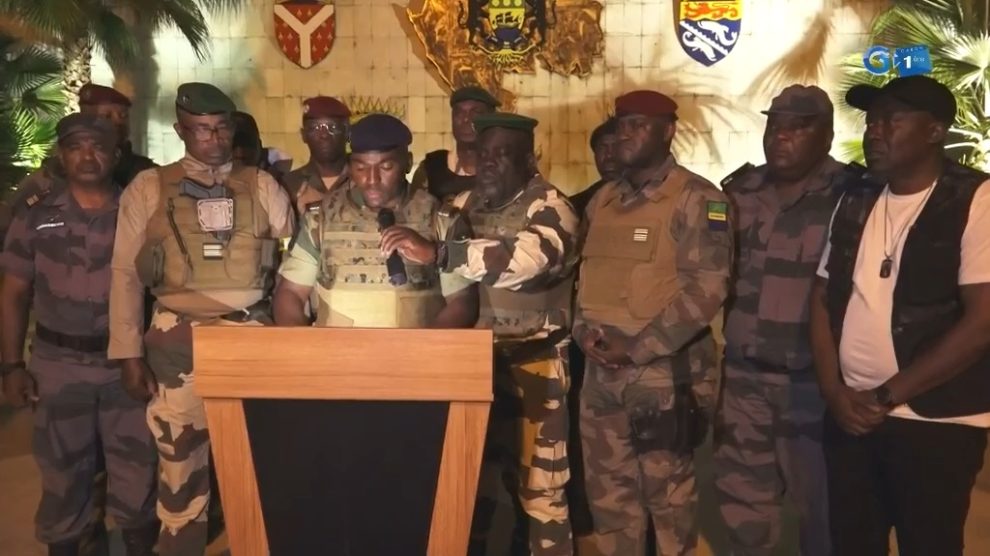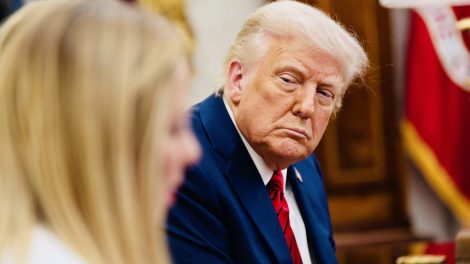All eyes on Gabon. On Wednesday, after it was officially announced that outgoing President Ali Bongo Ondimba had been reelected as head of the Central African nation, senior military officers seized power to overturn the result. This happened just weeks after a military junta gained control over Niger, sparking international condemnation and fears – now somewhat substantiated – that the instability would become contagious in the region.
- In a televised address on Gabon’s State TV, the coup leaders said that General Brice Clotaire Oligui Nguema – cousin to the deposed president – had been “unanimously” designated as leader of a transitional committee to lead the country.
Italy’s take: diplomacy as the guiding light. As it happened, Foreign Minister Antonio Tajani and Defence Minister Guido Crosetto were readying to meet their European Union colleagues in Toledo. The former quickly announced that his ministry’s crisis unit was monitoring the situation along with the Embassy in Libreville. Then, on Thursday, he offered Rome’s take on how to proceed on both the Gabonese and Nigerin dossiers.
- Both scenarios require “a diplomatic solution with Europe that is present, but never gives the idea of being a neo-coloniser,” stated FM Tajani upon his arrival in Toledo on Thursday, stressing that EU countries must “talk to the Africans as friends.”
- “We have very much appreciated the Algerian mediation proposals, always in defence of democracy,” he added, noting that Italy, too, is “working for a diplomatic solution” for both countries.
Best to reject a military intervention. As the Nigerin coup developed, Minister Crosetto cautioned other European nations against using armed force. FM Tajani reiterated that line in Toledo, arguing that military intervention would be a “disaster” and “create new implications and increase migratory flows from the South.”
- In response to the EU’s High Representative for Foreign Affairs, Josep Borrell, who called on Wednesday to impose sanctions on Gabon, the Italian FM vouched for a more cautious line. “We will see with the heads of government what to do. However, we will have to act with great prudence and always favour diplomacy,” he said.
Mind EU. “Every time an African country is destabilised – I am thinking of the Sahel, Niger, Gabon – the insecurity for Europe increases, with the risk of settlements of terrorists, criminals and traffickers of human beings and arms,” explained the Italian Defence Minister. He then stressed that the EU “must become a political player” to tackle “many of the problems that do not seem to affect European citizens now, but which may soon become decisive.”
- “What is happening in Africa calls for a different commitment and approach. The need to build a common policy that favours real economic growth, that builds democratic paths and the best conditions so that African peoples no longer have to flee from poverty, hunger, and wars, is becoming increasingly urgent.”
- That’s the idea behind the Italian government’s soon-to-be-unveiled Mattei Plan.
Back to Ukraine (and beyond). Both the African and Eastern European crisis scenarios must also be tackled through the lens of European security. Minister Crosetto then touched upon the Russian war in Ukraine. “‘The objective is to restore peace in Europe. This is why we must pursue two parallel paths: on the one hand, we must continue to help Ukraine […], and on the other, we must try to build a table for dialogue that can create the conditions for a just peace between Ukraine and Russia.”
- The Ukrainian and African dossiers require European countries to “learn to move together. It will take time, but one step at a time, all these goals can be achieved,” he remarked.
- He then met the United Nations’ Under-Secretary-General for Peacekeeping Operations, Jean Pierre Lacroix, to take stock of Italy’s contribution to UN peacekeeping missions, in particular the United Nations Interim Force in Lebanon.
Image: screenshot from Gabon State TV




